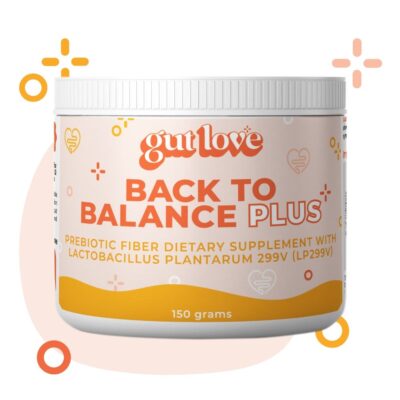Top Three Reasons to do Regular Colonoscopies with IBD
Whether you were recently diagnosed with IBD, have been told about the possibility of having IBD, or are curious about the colonoscopy procedure itself, then keep reading! We provide the top three reasons to do regular colonoscopies with IBD.
First off, what is a colonoscopy?
Colonoscopies are preventative, life-saving procedures that can detect a multitude of conditions. These conditions range from oncological conditions to non-oncological conditions, including inflammatory bowel disease (IBD).
A colonoscopy is a procedure where your doctor uses a special scope with a camera attached to look inside your intestines. Colonoscopies can show normal tissue, inflamed tissue, ulcers, polyps, cancer, etc. In order to evaluate the tissue properly, the bowels must be cleaned out by a bowel prep regimen.
Colonoscopies are used to take a closer look at the large intestine including the colon, rectum, and anus. They can also evaluate the terminal ileum, the last portion of the small intestine. Don’t worry, you will be under anesthesia so you won’t feel any of it!
Reason #1: To Make a Diagnosis & Determine Severity
Undergoing a colonoscopy is important to detect certain gastrointestinal conditions, including IBD. It is important not to focus only on subjective values, like symptoms that are present to define your diagnosis. Using objective values, such as a colonoscopy, your doctor will take biopsies which can then help determine a proper diagnosis.
Colonoscopies can help detect:
- Inflammatory bowel disease
- Polyps (cancerous and non-cancerous)
- Diverticulosis
- Indications for rectal bleeding and anemia
Getting your colonoscopy regularly can also help your doctor determine the extent of your disease. For example, sometimes ulcerative colitis can start in the rectum (proctitis) and progress to extensive colitis or even pancolitis (inflammation of the entire colon).
It is important to also note that Crohn’s Disease can occur in the colon as well. Due to the unpredictable nature of IBD, it is important to continue getting scoped regularly as recommended by your doctor to stay informed of your disease status.
Reason #2: To Determine if Treatment is Working
We know that with IBD, there are different types of remission that don’t necessarily align with symptoms. We might experience symptoms yet have no inflammation or we might have no symptoms but our intestines are inflamed. Regularly having a colonoscopy helps us stay updated on our condition!
At this point, you might be wondering how often a colonoscopy is recommended. We’re glad you asked! According to the Crohn’s and Colitis Foundation, it is typically recommended to get a colonoscopy every 1-2 years; however, the frequency of procedures depends on your individual risk factors.
Furthermore, results from the procedure can inform timely treatment plan adjustments for better outcomes.Talk with your doctor to determine what is recommended for you!
Reason #3: Colon Cancer Prevention & Peace of Mind
We sometimes dislike admitting to the fact that a colonoscopy gives us peace of mind but there’s some truth in it. As mentioned previously, colonoscopies are preventative. In IBD, we have an increased risk of colorectal cancer, so staying up to date on our condition can certainly bring peace of mind.
For all that we must go through, it can really ease some of our anxiety to know what’s happening inside of us to determine if it’s our IBD acting up or something else.
Keep in mind that getting colonoscopies regularly can provide you with more than just knowing what’s going on inside.
Colonoscopies help with:
- More data means understanding your condition
- Eases anxiety since you are up to date with your IBD
- Understanding how effective your treatment plan has been
- Helps determine changes to the treatment plan, if needed
- Comparing/contrasting with older scopes
- Confirming the origin of symptoms
As you can see, there are many reasons to do regular colonoscopies in IBD!
Final Thoughts
Colonoscopies are a great tool in your toolbox, allowing you to better understand your disease and take an active role in your healthcare. To help you prepare for your next colonoscopy we also have a great blog post full of tips and tricks for Colonoscopies.
Our goal is to help you advocate for your healthcare, feel confident as a patient, and understand your disease so that you can take appropriate action.
You can schedule a call here if you are ready to step into more support!







0 Comments